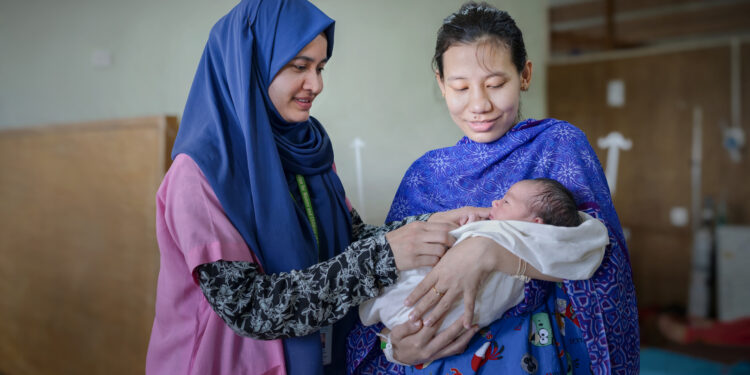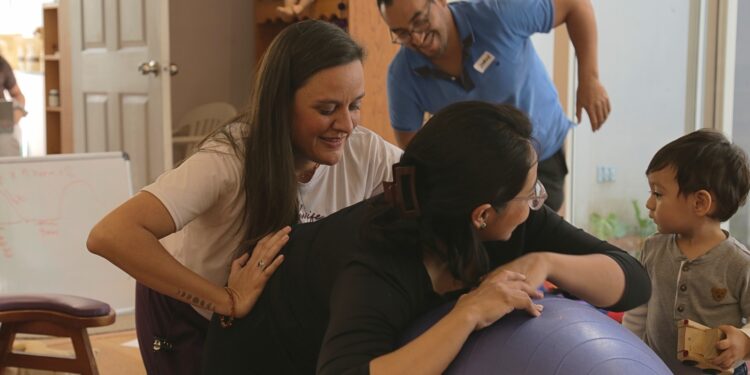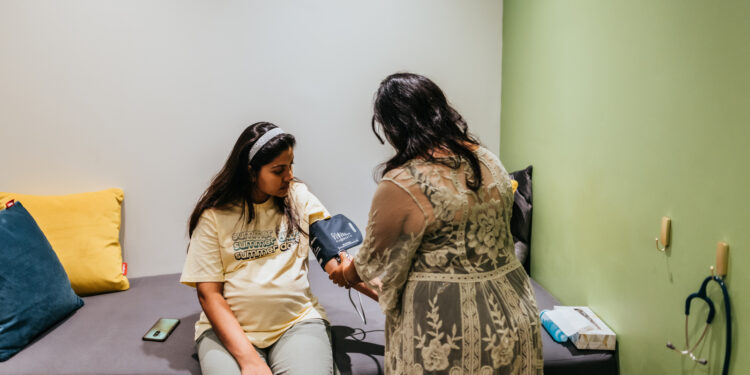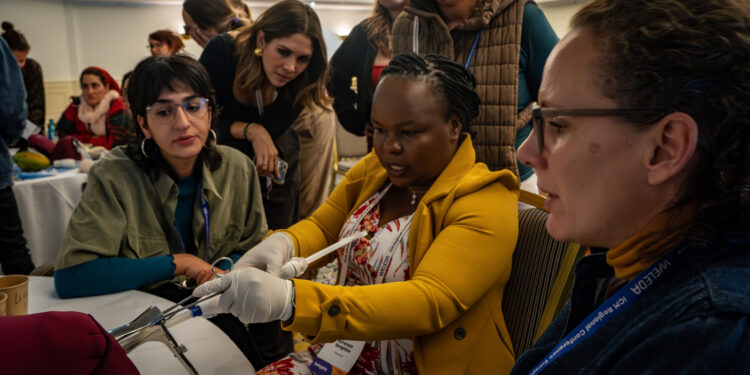Collaborate for Women (C4W) Initiative
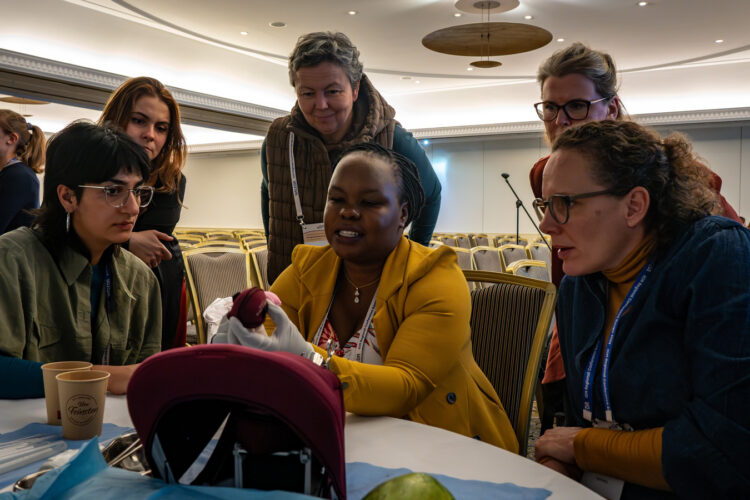
Collaborate for women, Abortion and Contraception Care Together (C4W ACCT)
C4W is an initiative by ICM and the International Federation of Gynecology and Obstetrics (FIGO), as well as the UN’s Special Programme in Human Reproduction (HRP) and the World Health Organization (WHO).
This initiative promotes competency-based, collaborative approaches to family planning and comprehensive abortion care, with midwives and obstetrician-gynecologists working together to expand access to high-quality, evidence-based services.
Background
Unintended, unwanted, and mistimed pregnancies are major drivers of maternal mortality, with unsafe abortion accounting for 8% of maternal deaths. Midwives and obstetrician-gynecologists (ob-gyns) play a critical role in delivering contraception/family planning (FP) and comprehensive abortion care (CAC), helping ensure access to essential services for women, girls, and gender-diverse people.
The Collaborate for Women, Abortion and Contraception Care Together (C4W ACCT) initiative supports this effort. ICM and FIGO are working with their respective national associations to enhance the capacity of both professions to deliver quality contraception / family planning (FP) and comprehensive abortion care (CAC) services in Nepal, Bangladesh, Democratic Republic of the Congo (DRC), Sierra Leone and Mozambique.
Interactive and interconnected
ICM and FIGO aim to support and strengthen each other’s contributions to the collaboration with the shared goal being that midwives and ob-gyns can better work together to increase access to innovative, respectful women-centered FP and CAC services.
FIGOs contribution includes.
- The creation of in-country taskforces comprised of midwives, ob-gyns, pre-service education faculty and representatives from government, WHO country offices and SRHR organisations
- Assessment of ob-gyns, midwives and associated cadres’ pre-service curricula related to FP & CAC
- Identification of gaps in chosen pre-service curricula and creation of a roadmap for the implementation of competency-based education (CBE).
ICMs contribution includes.
- Support for the midwives’ association (MA) within the national taskforces
- Hosting an international meeting with invited partners.
- Support for the MA to lead on in-country skills workshops – building midwives’ capacity to provide FP & CAC services
Midwives’ Scope of Practice
The Essential Competencies for Midwifery Practice outline the requisite knowledge, skills, and behaviours expected of midwives upon entering the profession. These competencies encompass the ability to deliver FP and CAC services in accordance with internationally recognized best practices. To support the integration of these competencies, the ICM’s Global Standards for Midwifery Education and accompanying resources offer guidance to educators on implementing CBE -an outcome-focused educational model that embeds learning within the context of real-world practice, ensuring that graduates are well-prepared to provide quality care.
In numerous countries, midwives often lack adequate pre-service and in-service education to effectively fulfill this aspect of their professional scope. Moreover, they are frequently not supported in delivering FP and CAC services. Strengthening the skills and capacity of practicing midwives in these areas is essential for expanding access to respectful, woman-centered FP and CAC services and for reducing maternal mortality associated with unintended pregnancies.
A commitment to respectful women-centered care
C4W ACCT will utilise a gender transformative approach to address barriers to women accessing information and hierarchies of power between midwives and ob-gyns that can restrict midwives from working to their full scope of practice in the provision of FP and CAC services.
FIGO and ICM believe that our collaboration will result in the development of inclusive and facilitatory processes that see midwives and ob-gyns as being better equipped to provide innovative respectful women-centered care on a national level and increase professional understanding and cooperation on a global level.
Who we work with
For this collaboration, ICM is working with the following MAs and FIGO is working with their national FIGO-societies in the same countries:
Bangladesh:
- Bangladesh Midwifery Society (BMS)
- The Obstetrical and Gynaecological Society of Bangladesh (OGSB)
Democratic Republic of Congo:
- Société congolaise de la Pratique Sage-Femme (SCOSAF)
- La Société Congolaise de Gynécologie et d’Obstétrique / the Congolese Society of Gynecology and Obstetrics (SCOGO)
Mozambique:
- Associaçao de Parteiras De Moçambique
- The Association of Gynaecologists and Obstetricians of Mozambique (AMOG)
Nepal:
- Midwifery Society of Nepal (MIDSON)
- The Nepal Society of Obstetricians and Gynaecologists (NESOG)
Sierra Leone:
- The Sierra Leone Association of Gynaecologists and Obstetricians (SLAGO)
- Sierra Leone Midwives’ Association (SLMA)
Additional Translations / Traduções Adicionais
ICM’s materials and resources are officially available in our three working languages: English, Spanish, and French. As part of this initiative, some resources have been translated into Portuguese. You can download the initiative’s one-pager below and access individual translated resources in Portuguese at the bottom of each relevant resource page.
Os materiais e recursos da ICM estão oficialmente disponíveis em nossos três idiomas de trabalho: inglês, espanhol e francês. Como parte desta iniciativa, alguns recursos foram traduzidos para o português. Você pode baixar o resumo da iniciativa abaixo e acessar cada recurso traduzido em português ao final da respectiva página.
